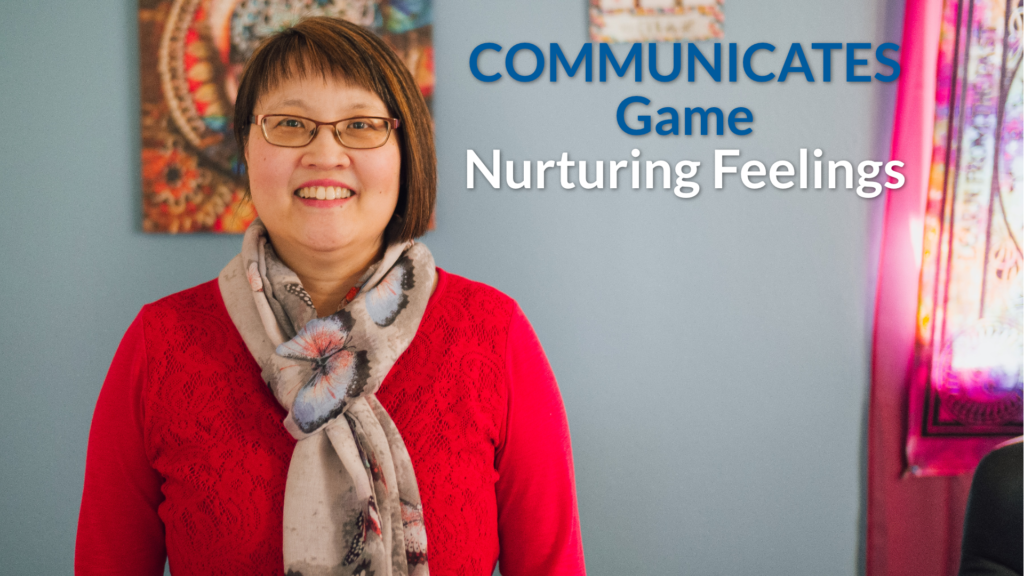Let’s Play COMMUNICATES (Tone of Voice)

Do certain noises or sounds make you happy while other noises or sounds can annoy you? What do you feel when you hear an ice cream van? Happy or perhaps nostalgic. What about a siren? Most likely annoyed by the loud sound of a siren. Your tone of voice can be the same way. Some […]
Awareness | The COMMUNICATES Game

https://vimeo.com/863368872?share=copy If you’re a sensitive, introverted, conflict phobic person who is also a people pleaser, and we’d love to be able to openly and confidently communicate your thoughts, feelings and desires without the fear of arguments or criticisms, so that you can have a happy and harmonious relationship with your partner. Stay tuned for fun […]
Let’s Play COMMUNICATES (Awareness of Words and Actions)

Sometimes you can become upset, even overwhelmingly so, that you might not be aware of your actions. You might not even be aware of the words that are coming out of your mouth. You know you’re angry and upset, and your expression shows it. How aware are you of what you’re saying and acting during […]
Choices | The COMMUNICATES Game

If you’re a sensitive, introverted, conflict phobic person who is also a people pleaser, and you would love to openly and confidently communicate your thoughts, feelings and desires, without the fear of arguments or criticisms, so that you can have a happy and harmonious relationship with your partner. Stay tuned for fun and valuable information. […]
Let’s Play COMMUNICATES (Choose Your Path)

Everyone has a certain path or journey that he or she is traveling on during his or her lifetime. Including you. As you travel on your path during your journey, choices or opportunities will be presented to you. You will look at your opportunities and choices and decide the one that is best for you […]
Inspiration | The COMMUNICATES Game

If you’re a sensitive, introverted and conflict phobic person, who would love to be able to communicate your thoughts, feelings and desires, without the fear of arguments and criticisms, so that you can have a happy and harmonious relationship with your partner, so that you will never feel lonely again in your relationship. Stay tuned […]
Let’s Play COMMUNICATES (Inspiration)

It doesn’t matter if you’re playing an actual board game, sports, the game of life, or a communication game, who doesn’t want to be inspired or want to inspire? The definition of inspire means “to make someone feel that they want to do something and can do it”. You can have a fun and constructive […]
Nurture Feelings | The COMMUNICATES Game

If you’re a sensitive, introverted, conflict phobic person who would love to be able to communicate your thoughts, feelings and desires, without the fear of arguments and criticisms, so that you can have a happy and harmonious relationship so that you will never feel lonely again, in your relationship with your partner. Stay tuned for […]
Let’s Play COMMUNICATES (Nurture Feelings)

During your ‘communication game’ has this ever happened to you? You’re having a nice communication and then all of the sudden the mood suddenly changes? The mood has changed because either another person joined the group, or something was said which totally changed the whole mood of the conversation. If you resonate as being a […]
GraceSOULutions Featured In New York Weekly

I’m so excited to have been featured in New York Weekly! Here is a brief excerpt from the article: Grace CW Liu, a renowned communication expert and founder of GraceSOULutions, is revolutionizing the way introverted, sensitive women communicate in their personal relationships. Through her expertise as a speech-language pathologist and her understanding of the power […]
